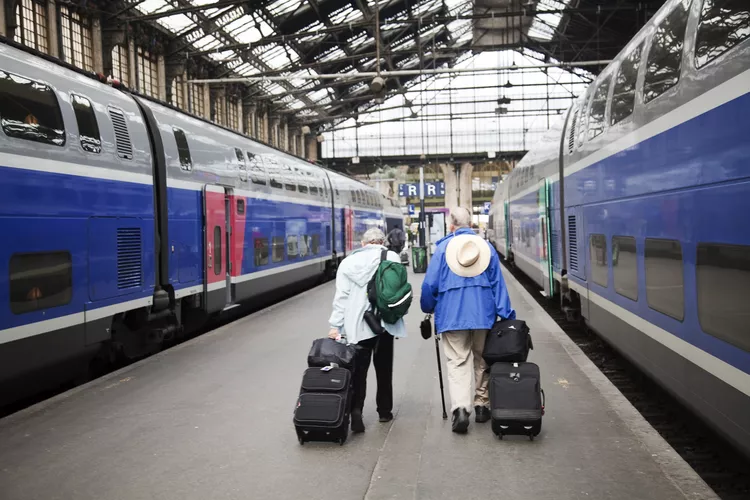Summary
Traveling by train can be convenient, enjoyable, and economical. However, you can minimize your risk of injury, illness, and theft by taking a few simple precautions.
Before You Travel
Pack light so that your luggage is easy to carry and lift. Depending on your destination, porters may or may not be available. In some countries, such as Italy, you must reserve porter service in advance.
Plan your itinerary with safety in mind. Therefore, if possible, avoid changing trains late at night, particularly if long layovers are involved.
Research the train stations you plan to use and find out if they are known for pickpockets, train delays, or other problems.
Purchase locks for your luggage. If you are going on a long rail journey, consider buying carabiners, straps, or cords to secure your bags to the overhead rack, making them more difficult to steal. Moreover, buy a money belt or pouch and use it to hold cash, tickets, passports, and credit cards. Always wear the money belt; do not stuff it into a bag or purse.
In the Train Station
Even in broad daylight, you may be a target for thieves. Therefore, wear your money belt and keep a close eye on your luggage. Organize your travel documents and train tickets to avoid fumbling, as a pickpocket would take advantage of your confusion and steal something before you know what has happened.
If you must spend several hours in a train station, find a place to sit that is well-lit and near other travelers.
Secure your valuables. Lock your bag, keep your purse or wallet on your person at all times, and use a money belt to hold your cash, credit cards, tickets, and travel documents.
Keep your luggage with you. Never leave it unless you can store it in a locker.
Never cross train tracks to get to a platform. It is essential to use marked pathways and stairways to navigate between platforms.
On the Platform
Once you find your platform, pay close attention to announcements. Any last-minute platform changes will be announced before they appear on the departures board. If everyone else gets up and heads to another platform, it is wise to follow them.
As you wait for your train, maintain a safe distance from the edge of the platform to avoid falling onto the rails, which may be electrified. Keep your baggage with you and stay alert.
Boarding Your Train
Board your train as early as possible to keep your luggage with you. Place large bags in your direct line of sight.
Ensure you enter the correct class of train car and verify that your car is going to your destination; not all cars will remain with your train for the entire journey. You can usually find this information by reading the sign on the outside of the rail car. When in doubt, do not hesitate to ask a conductor.
Use care when climbing the steps to your rail car. Always hold onto the railing and be mindful of where you walk. If you need to move between cars, be aware of gaps that may present trip hazards. Once the train begins to move, keep one hand on a railing or seat back as you walk through the rail cars, as it is very easy to lose your balance on a moving train.
Luggage, Valuables, and Travel Documents
Lock your bags and keep them locked. Take them with you when you use the restroom. If this is not feasible and you are traveling alone, bring all valuable items with you. Never leave cameras, money, electronics, or travel documents unattended.
Keep your compartment locked while you sleep, if possible.
Do not trust strangers. Even a well-dressed stranger may turn out to be a thief. If you are sharing a compartment with travelers you do not know, ensure that you sleep on top of your money belt so that you will notice if someone tries to take it from you.
Food and Water Safety
Assume that tap water on your train is not potable. Consequently, drink bottled water instead of tap water. Use hand sanitizer after washing your hands.
Avoid accepting food or drinks from strangers, as this can pose risks to your health and safety.
Note that some trains have no-alcohol policies; others do not. Therefore, it is essential to respect the policy of your rail operator. Never accept alcoholic beverages from people you do not know.





